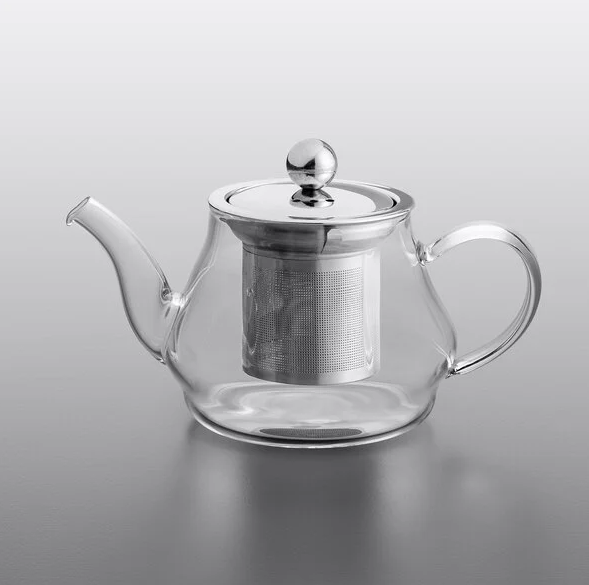Best Teas for Upset Stomach
This post may contain affiliate links. Simple Loose Leaf is a participant in the Amazon Associates Program, an affiliate advertising program designed to provide a means for sites to earn advertising fees by linking to Amazon.com. Nausea, vomiting, stomach ache, stomach ulcers, irritable bowel syndrome and abdominal gas are only some gastrointestinal problems that affect many people. While the medicine may have an answer to many of these problems, nature may have an answer too. There are many teas that may help soothe the stomach pain and help with all sorts of digestive problems.
Chamomile tea
Chamomile, a plant from the daisy family, is probably one of the most popular herbal remedies in the world. There are different types of chamomile, with German and Roman being the most popular. For problems related to gastrointestinal tract, Roman chamomile is more often a better choice than German chamomile. Studies suggest it may help relieve flatulence, ease nausea, soothe stomach muscles and even help treat bacterial infections[1]. To help with stomach problems you can brew pure dried chamomile flowers or blends with chamomile. Steep 1-2 teaspoons of dried flowers in one cup of boiling water for 5-10 minutes. Chamomile is considered safe, with very little or no side effects[2].Ginger tea
One of the most popular roots in the world–ginger–is probably one of the best teas to have in your kitchen at all times. It can help with different types of stomach problems – from morning sickness and motion sickness, to nausea and vomiting during chemotherapy. Ginger or Zingiber officinal originates from India. Today it’s an important ingredient in many cuisines. Ginger root is available from almost any supermarket. For making tea, you can use both fresh and dried ginger. Fresh ginger will have a more intense flavor. Studies suggest taking ginger multiple times a day for treating morning sickness.[3] If you want an instant remedy for soothing upset stomach simply peel and slice a small piece of fresh ginger and steep or boil in hot water[4]. Ginger, fresh and dried, may help with flatulence too[5]. Learn how to make ginger tea here.Peppermint tea
Peppermint or Mentha piperita is a plant famous for its fresh and minty scent and flavor. However, don’t confuse peppermint with spearmint, a similar, but less minty plant. What makes peppermint so special and fresh is menthol, an organic compound that may provide numerous benefits. Peppermint is commonly used for making essential peppermint oil or peppermint tea. While the most common use of peppermint is freshening breath, it may offer a huge number of benefits. Peppermint may help with reducing nausea in pregnancy, relax the muscles in digestive tract[6] and even help relieve flatulence[7]. Steep 1-2 teaspoons of dry peppermint tea leaves or one peppermint tea bag in a cup of boiling water for 5 minutes[8]. Strain and drink.Licorice root tea
Licorice or Glycyrrhiza glabra is a plant popular because of its sweet roots. It’s one of those ingredients you either love or hate. Licorice is not only one of the sweetest natural teas, it comes with dozens of benefits and helping sooth upset stomach is one of them. Licorice is often used for treating gastric ulcers, and inflammation of the stomach lining[9]. Studies suggest taking licorice 20-30 minutes before the meal. Be careful, though. Overconsumption can cause severe side-effects. The general safe dose for adults is considered being between 1-5 grams of licorice a day[10].Fennel Seeds Tea
While looking for a natural remedy for an upset stomach or easing digestion, fennel is a must try. Fennel or Foeniculum vulgare is a medicinal plant, popular both for its benefits and flavor[11]. Seeds have “antioxidant, antitumor, chemopreventive, cytoprotective, hepatoprotective, hypoglycemic, and oestrogenic activity”, and has traditionally been used for treating diarrhea, gastritis, flatulence, irritable colon and stomach ache.[12] You can eat fennel daily, without experiencing any side-effects. Brew it in hot water or eat raw in salads or other dishes.Dandelion tea
Dandelion, a pretty weed from our backyards can be more than helpful in treating gastrointestinal problems. If you have never tried dandelion tea, you may be in for a surprise. All plants of this plant are edible – leaves for salads and flowers and root for medicinal purposes. Traditionally, flowers and leaves are used for digestive problems[13]. Studies suggest that dandelion combined with St. John’s wort, calendula, fennel and lemon balm, may greatly reduce symptoms of chronic colitis[14] and may help with upset stomach[15]. Learn how to make dandelion tea here.Calendula
Calendula or Marigold, another pretty yellow flower has been used for its soothing and calming properties for centuries. Studies show that calendula possesses gastroprotective and anti inflammatory activity and may help with stomach ulcers[16].Disclaimer: This article is for informational purposes only. It’s not intended to replace medical advice, diagnosis or treatment. Every person is different and may react to different herbs and teas differently. Never use teas or herbs to treat serious medical conditions on your own. Always seek professional medical advice before choosing home remedies.
References:
[1] https://www.japsonline.com/admin/php/uploads/288_pdf.pdf [2] https://www.ncbi.nlm.nih.gov/pmc/articles/PMC2995283/ [3] https://www.ncbi.nlm.nih.gov/pmc/articles/PMC4818021/ [4] https://www.ncbi.nlm.nih.gov/pmc/articles/PMC4818021/ [5] https://www.silicol.co.uk/top-flatulence-remedy-suggestions/ [6] http://cms.herbalgram.org/expandedE/Peppermintleaf.html?ts=1574302264&signature=55ea32dbd5712f0f8599db3ed8b7a9ba [7] https://www.nhs.uk/conditions/flatulence/ [8] https://www.silicol.co.uk/top-flatulence-remedy-suggestions/ [9] https://www.ncbi.nlm.nih.gov/pmc/articles/PMC3818629/ [10] https://www.ncbi.nlm.nih.gov/pmc/articles/PMC3498851/ [11] https://www.ncbi.nlm.nih.gov/pmc/articles/PMC4137549/ [12] https://www.ncbi.nlm.nih.gov/pmc/articles/PMC4137549/ [13] https://www.researchgate.net/publication/237759417_Dandelion_Taraxacum_officinale_and_T_mongolicum [14] https://www.researchgate.net/publication/237759417_Dandelion_Taraxacum_officinale_and_T_mongolicum [15] http://pennstatehershey.adam.com/content.aspx?productid=107&pid=33&gid=000236 [16] https://www.researchgate.net/publication/248707336_GASTROPROTECTIVE_EFFECTS_OF_CALENDULA_OFFICINALIS_EXTRACT
More from:
SLL




Leave a comment